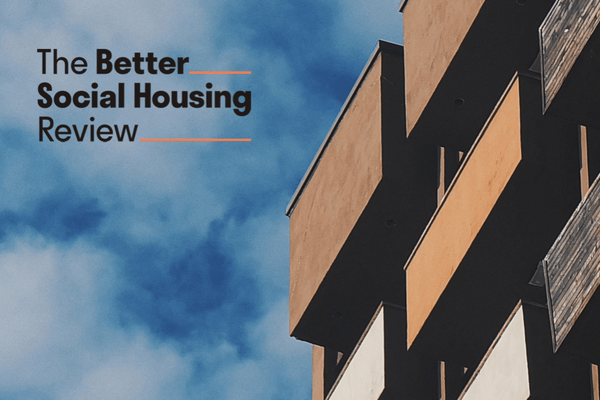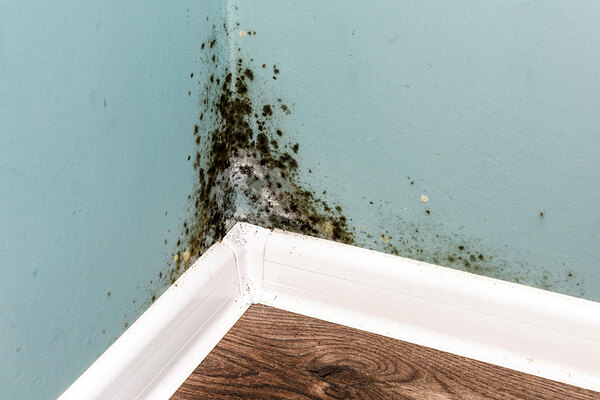You are viewing 1 of your 1 free articles

Charlie Norman, CEO, MSV Housing; Ian McDermott, CEO, Peabody; Tracey Gore, director, Steve Biko Housing Association
The Better Social Housing Review: one year on
A year since the publication of the BSHR’s independent report, Charlie Norman, Ian McDermott and Tracey Gore, chairs of the BSHR, explain how the sector has taken on its learnings
A year ago, the Better Social Housing Review (BSHR) published its independent report that looked into instances of poor quality in social housing and made seven recommendations for social housing landlords.
In May this year, the National Housing Federation (NHF) and the Chartered Institute of Housing (CIH) responded with a joint action plan. This work was led by our Steering Group and Working Group on Racism and Structural Inequalities in the BSHR.
The action plan includes resources, tools and longer-term programmes of work to support social landlords to make changes within their organisations and implement the recommendations. It also brings our local authority partners on board and puts tackling structural inequalities at the centre of change.
We have been delighted by the sector’s response to our action plan, with many groups of housing associations endorsing it, including the G15 and Greater Manchester Housing Providers. We’re also really pleased that local authority sector bodies are working with us to take the recommendations forward.
Today, the NHF and the CIH publish an update on progress in implementing the action plan. It includes work they’ve done to support members, what’s changed so far and the impact it’s already having.
Six months since the action plan was launched, it’s clear that housing associations are committed to proactively improving the quality of homes and services where they can, as seen in the case studies highlighted in this new report.
“We have been delighted by the sector’s response to our action plan, with many groups of housing associations endorsing it, including G15 and Greater Manchester Housing Providers”
For example, Sanctuary has appointed a new resident advisory panel to input directly on its strategy. Prima Housing staff visited every resident individually to find out how they are doing, inspect their homes and ask whether any support was needed.
This process found that 21% of homes had damp and mould issues, most of which had not been reported but were minor and easily managed at such an early stage.
And RHP, which works across west London, conducted 50 in-depth interviews with a cohort of residents who were representative of its diverse customer base. Gaps in customer experience were identified and a new repairs service was rolled out.
These are just a handful of examples of the great work being done, but what they all demonstrate is that housing associations and social landlords are not waiting to find creative, innovative ways to improve and to engage residents.
It’s important to appreciate that this work is still in early stages, and it will take time for housing associations and councils to implement the recommendations fully and for their impact to be felt by residents. It will also take time for the NHF and the CIH to help develop more of a shared approach to collecting data about the condition of homes and who lives in those homes, agree shared principles for an excellent repairs and maintenance service and update our Together with Tenants charter.
These need to align with upcoming changes to regulation – including the revised Decent Homes Standard and the Social Housing (Regulation) Act – and support social landlords through this change.
“Six months since the action plan was launched, it’s clear that housing associations are committed to proactively improving the quality of homes and services where they can”
This ambitious programme of work is taking place in an increasingly challenging environment, and one that the BSHR panel itself identified as a huge contributing factor to the condition of many homes. After decades of underinvestment from the government, England’s homes are among the oldest and most poorly insulated in Western Europe. Lasting change will require collaborating with – and funding from – central government as part of a wide-ranging housing strategy and regeneration plan.
In the meantime, we know that social landlords are continuing to show their social purpose by using what resources they do have to make meaningful improvements to their services, demonstrating elements of what can be done on a more systemic scale, should the next government choose to truly prioritise investing in housing.
Charlie Norman, chief executive, MSV Housing; Ian McDermott, chief executive, Peabody; Tracey Gore, director, Steve Biko Housing Association
Sign up for our daily newsletter
Already have an account? Click here to manage your newsletters












